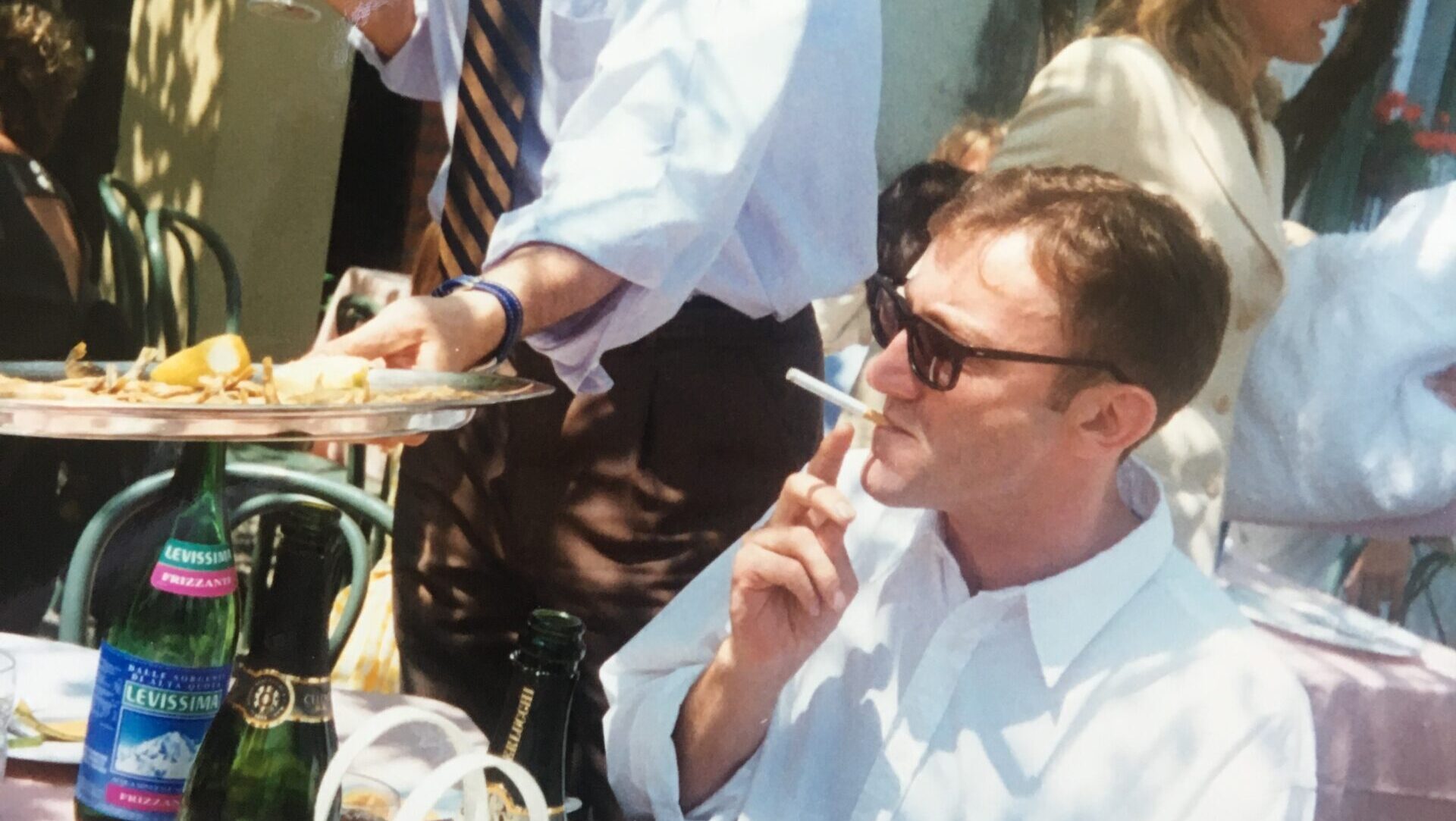Sat around the rickety table of her childhood home, or munching on steak frites in a dimly lit north London brasserie, family mealtimes have long supplied a sense of solace for Sydney Evans.
Whether using the wrong pan, or cutting an onion offensively, at times my anxiety about cooking meant I refused to pick up a wooden spoon out of fear of stirring the pot. Growing up in a small mining town in South Wales, a family of eight living in a three-bedroom house, my dad’s early experiences of cooking became a matter of maintaining order when space was limited. My own tendencies have led to much contention between the chefs in our household – my dad and I.
“It would be my mother cooking, and then two or three of us washing up, and another person putting it on the pile and the other one drying and putting it away,” my dad tells me.
To this day, if things in the kitchen leave this order, a misplaced pot here or dish rag in the sink there, tensions can begin to simmer. Where I sit firmly on the side of the fence that garlic will work in a dish as long as its sliced or chopped, no matter how haphazardly, my father will peer over from his side of the fence in disagreement, yelling: “Not so small!”

Coach and healer, Jules Blaine Davis, has built a career out of helping people reconnect with themselves through cooking. “We wake up to the kitchen. Whether it’s the aroma of coffee, or the sound of your dad’s footsteps getting ready to go to work. Those are the beginning ingredients to our shaping.”
Her book The Kitchen Healer looks at how early experiences in the kitchen can lead to stress and in some cases, trauma. Whether its parents yelling or never having enough time to sit and eat breakfast. The kitchen becomes a place of survival, instead of enjoyment.
In fact, last year, research from the architectural firm Resi found that more people have arguments in the kitchen than in any other room in the home.
The kitchen table is the centre of our family home. It’s an ugly old thing with intrusive legs that stick out and leave your knees bruised if you stand up too quickly. Under the colourful awnings of various tablecloths lie stains from steaming cafetieres at breakfast, and scratches from clumsily placed cutlery. Once a week, my mum will look over to my dad and say: “We need to buy a new table.”

Still, we gather around our table most nights. It’s an object of necessity that allows us to sit and eat together. On nights when anger, tiredness, or stress follow us from outside, it becomes a place of solace. No matter the kind of day, or if an onion was sliced unevenly, once we arrive at the table, feasting as a family, any animosity quickly disappears.
Before my brother and I came along, Friday nights with my parents’ chosen family of sorts were spent at the Camden Brasserie. An unfussy spot that actor Brian Cox once described as “quietly wonderful”, it was the first place I visited at barely a few weeks old, tucked under the table in my car seat, my parents committed to dining en famille. The staff even wrote me a card to welcome my arrival to the world.
“We’d finish work, come home and know that we didn’t have to cook or do anything,” my dad tells me. “We’d go to the Brasserie for steak, fries and wine and then head over to The Black Cap. That was our Friday night.”
Finding my own way in the kitchen wasn’t always straightforward. Where my father cooks as a way of maintaining the order he experienced in the kitchen growing up, I instead look for a way to escape into it. But ultimately, we found a middle ground in a shared commitment to keep dining en famille.

This has only served to strengthen our relationship. Like Carmie asserting the use of “Yes, chef” to show mutual respect in The Bear, we now have equal regard for each other and our methods of cooking. Suggestions are even welcomed.
“The kitchen provides a place where we can grieve and celebrate, and all the things that we’re doing anyway, in there,” says Jules. “Everybody always wants to be in the kitchen, and it’s because we’re hungry to connect.”
